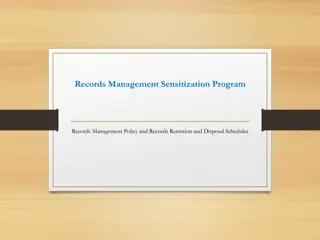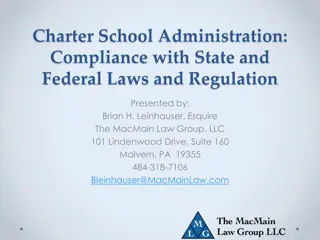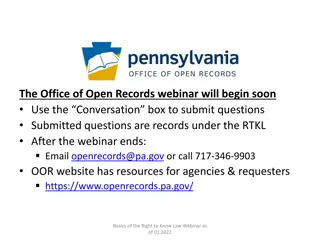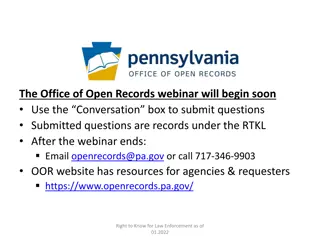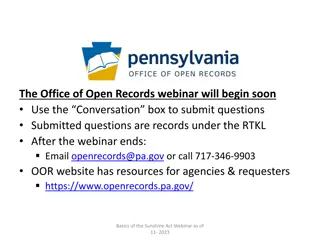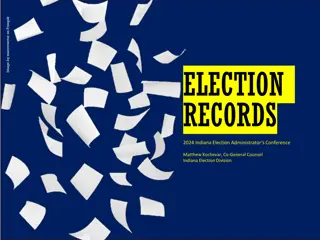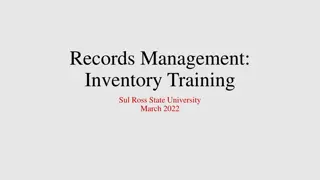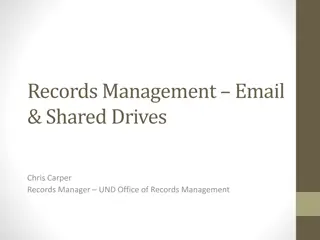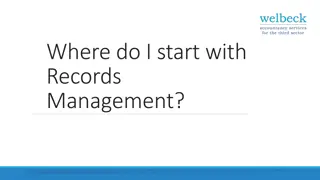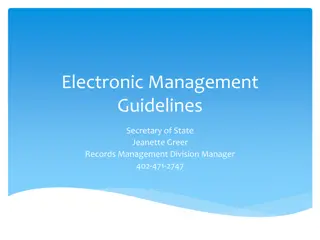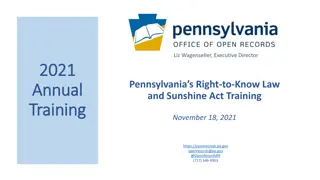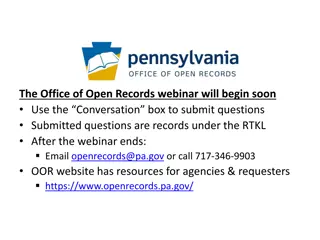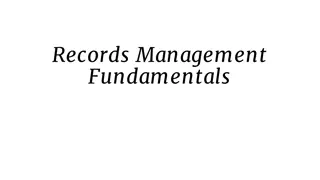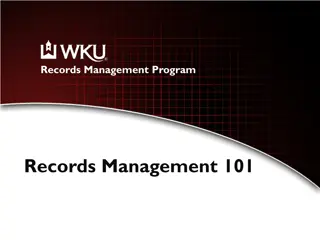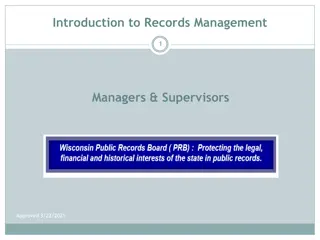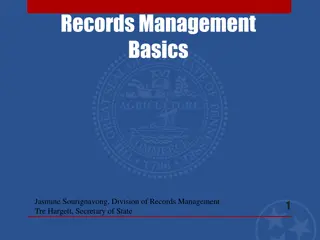Understanding Pennsylvania's Open Records Laws
Explore key aspects of Pennsylvania's open records laws including coverage, public notice requirements, public comment guidelines, and executive session allowances. Learn about the Office of Open Records and its resources for agencies and requesters. Gain insights into the Sunshine Act and how it applies to government officials.
Download Presentation

Please find below an Image/Link to download the presentation.
The content on the website is provided AS IS for your information and personal use only. It may not be sold, licensed, or shared on other websites without obtaining consent from the author. Download presentation by click this link. If you encounter any issues during the download, it is possible that the publisher has removed the file from their server.
E N D
Presentation Transcript
The Office of Open Records webinar will begin soon Use the Conversation box to submit questions Submitted questions are records under the RTKL After the webinar ends: Email openrecords@pa.gov or call 717-346-9903 OOR website has resources for agencies & requesters https://www.openrecords.pa.gov/
Erik Arneson, Executive Director PA Sunshine Act Primer Webinar for Government Officials Phone Number: 717.346.9903 http: //openrecords.pa.gov
Who is Covered? Applies to any state or local government body and all committees that perform an essential government function and exercises authority to take official action. Making recommendations = official action
Public Notice Three days in advance of the first regular meeting of the year, along with all of the remaining meetings Printed in a newspaper of general circulation (websites don t count) Posted at the meeting site Special meetings = 24 hour notice No requirement for cancellations
Public Comment Commenters can be limited to residents and taxpayers Right to comment on issues that are or may be before the board (before any pertinent votes) Board may establish reasonable rules for public comment (time limits, spokespersons, specific v. general)
Executive Sessions Can be held before, during, or after an open meeting Complete reason must be announced during the open meeting (Reading v. Reading Eagle) No requirement for minutes No official action can be taken during an Executive Session votes must occur in a public session
Executive Sessions II Allowable Reasons for Executive Sessions: Personnel matters (hiring, firing, discipline) Discussing labor negotiations Considering purchasing, leasing or selling property Consulting with counsel about litigation Avoiding violating privilege or confidentiality Discussing university admission standards Discuss emergency preparedness
Miscellaneous Must produce meeting minutes recording board attendance and who voted for and against No requirement for an agenda The public can record public meetings Agency recordings and minutes are public records Agencies can cure violations Complaints = public goes to court to enforce Fines are paid by the officials, not the agency
Additional Resources www.OpenRecords.pa.gov Citizens Guide Agency Guides Final Determinations and Key Court Decisions Open Records Officer Guidebook On Site Training = RA-DCOORTRAINING@pa.gov Twitter Feed = @OpenRecordsPa OOR Phone = 717.346.9903 RTKL Current Issues as of 05.16
Webinar Q&A Please send your questions now Use the Conversation box to submit your questions Submitted questions are records under the RTKL Questions can also be sent to openrecords@pa.gov Or call 717-346-9903 OOR website has resources for agencies & requesters https://www.openrecords.pa.gov/



